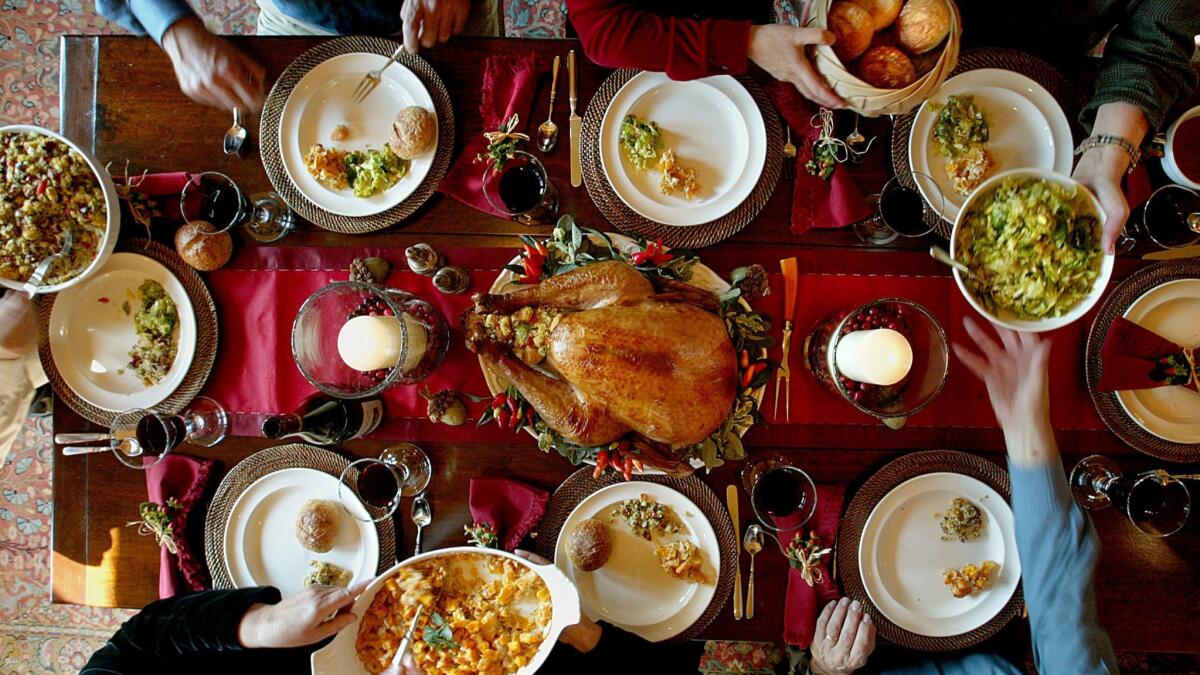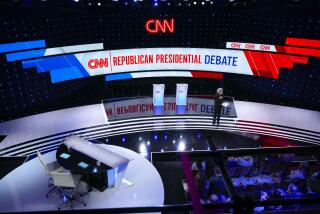On Thanksgiving, partisan politics cost Americans nearly 74 million hours with family and friends

The 2016 presidential election was so toxic that Americans spent nearly 74 million fewer hours with family and friends on Thanksgiving Day, new research suggests.
More than 48 million hours were lost when Thanksgiving guests from precincts that voted for Republican Donald Trump cut short their visits to hosts in precincts that went for Democrat Hillary Clinton. Another 35 million hours were lost when visitors from Clinton precincts arrived late or departed early from dinners hosted in Trump precincts, the analysis found.
The more that visitors were exposed to campaign commercials in the months before the election, the less time they spent at cross-partisan Thanksgiving gatherings a few weeks after election day.
“Our results indicate that partisan polarization extends in quantitatively meaningful ways to close family settings and that political advertising and related campaign efforts can exacerbate these fissures,” economists M. Keith Chen and Ryne Rohla wrote in Friday’s edition of the journal Science.
The pair came up with a name for this dysfunction — the “Thanksgiving effect.”
Chen, a professor of economics at UCLA’s Anderson School of Management, and Rohla, a graduate student specializing in political economy and the economics of culture and religion at Washington State University in Pullman, cited anecdotal evidence that many Americans called off Thanksgiving plans with “politically problematic relatives” in the wake of the unusually divisive election. It made them wonder whether they could demonstrate this empirically, and perhaps even quantify it.
They started with anonymized data from more than 10 million smartphones. The “pings” from the phones between 1 a.m. and 4 a.m. in the weeks before Thanksgiving told the researchers where each phone user lived, and the pings between 1 p.m. and 5 p.m. on Thanksgiving Day told them where they went for their holiday meal.
Chen and Rohla cross-referenced those locations with precinct-level voting data from state and county election officials around the country. The phone users were presumed to have voted the way their precincts as a whole voted.
Then the researchers narrowed their focus to the phone users who were at home in the morning and at night on Thanksgiving, but who went somewhere else for dinner. These people, they figured, were able to “control the duration of their visits,” unlike guests who flew in from out of town and wouldn’t have been able to leave no matter what went down over turkey and stuffing.
Among these Americans, the average length of Thanksgiving dinner was 4 hours and 17 minutes, according to the study. About 44% of dinners were cross-partisan gatherings.
The phone data revealed that guests from Trump precincts who dined in Clinton precincts spent 50 to 70 fewer minutes at their holiday meals compared with the national average. When guests from Clinton precincts traveled to Trump precincts, they stayed for 20 to 40 fewer minutes than the national average.
The researchers noted that the 23% of Americans who don’t use smartphones were not represented in their analysis. But when they compared their model of phone users with the actual ballots cast by voters, the results were only off by 1 percentage point in 33 of the states and were within 5 percentage points in the remaining 17 states.
If the election were truly to blame for this, Chen and Rohla figured, then there ought to be a correlation between the amount of political advertising Americans were exposed to and the amount of time they could stand to be in the presence of friends and family who voted for the other candidate.
To see if this was true, the pair turned to a database of all presidential campaign commercials that aired on TV between mid-June and November. Sure enough, they found that for every 1,000 commercials that aired in a phone user’s media market, the duration of their cross-partisan dinner was 2.6 minutes shorter.
“Some media markets in swing states saw more than 26,000 ads over the course of the campaign,” the economists noted. That implies that a “vote-mismatched” family from Orlando, Fla., cut its Thanksgiving dinner short by 1 hour and 9 minutes, they wrote.
On the plus side, when the researchers compared the data from 2015 and 2016, they found that Americans were still willing to spend time with family and friends who had different political points of view after the election was over. They just couldn’t tolerate them for as long.
“Travelers were more likely to change the duration of Thanksgiving gatherings than to change the destination,” the authors wrote.
Follow me on Twitter @LATkarenkaplan and “like” Los Angeles Times Science & Health on Facebook.
MORE IN SCIENCE
Scientists surprised to find dunes on Pluto that are made of tiny grains of methane
Triclosan could be really harmful to your gut, and it’s probably in your toothpaste







